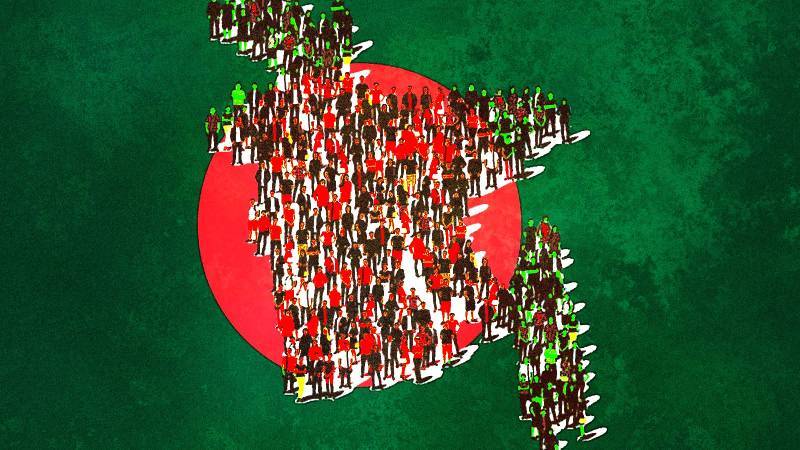
The phrase "critical juncture in history" has often been used to describe Pakistan's situation and how it has undergone one such critical juncture at least once in each of its seven decades of existence. Today, the phrase is being aptly used for a former Pakistani territory, Bangladesh.
Bangladesh has been contending with a volatile political landscape for weeks, marked by mass protests against a controversial government quota system and increasing international scrutiny. The current wave of upheaval began on July 1, 2024, when students launched demonstrations against Sheikh Hasina Wajid's decision to reinstate a job quota system, which the students argued limited their employment opportunities. This quota system would reserve 30% of government jobs for children of those who fought in the 1971 war against Pakistan, but it quickly became a contentious issue as the students facing rising unemployment saw it as cronyism for Wajid to entrench her power and unfairly discriminate against the youth.
The situation escalated on July 15, when government-aligned groups allegedly attacked protesters, leading to violent clashes. On July 18, the government imposed a nationwide curfew and deployed the military with orders to use live ammunition, if necessary. This heavy-handed approach resulted in a tragic loss of life. Reports indicate that at least 170 people, including policemen, have died, with fears that the true toll may be significantly higher. The crackdown has also seen widespread reports of human rights violations, including unlawful killings, enforced disappearances, and the torture of detainees.
Adding to the chaos, the government imposed an internet blackout, severely restricting access to information and communications. Although this ban was partially lifted on July 23, it was criticised as an attempt to suppress media coverage and control the narrative. The blackout effectively cut off Bangladesh from the international community, raising concerns about transparency and accountability.
While Bangladesh navigates this period of turmoil, the path forward remains uncertain. The government faces the daunting task of restoring order while addressing the legitimate grievances of its citizens
The international community, including the United Nations, condemned the violence and called for immediate action. UN experts urged the Bangladeshi government to end the crackdown, restore internet access and ensure accountability for human rights abuses. They emphasised the need for independent investigations into the violations and for the government to take responsibility to regain the public trust.
Sheikh Hasina Wajid's resignation from the premiership and subsequently fleeing the country while leaving the military to sort out the governance mess has added another layer of complexity to the situation. Amidst growing unrest and international pressure, her departure signals a potential shift in Bangladesh's political landscape. The military has stepped in to restore order, sparking fears of a prolonged period of martial law. The army's involvement, coupled with the resignation, has left the country in a state of uncertainty, with many questioning the future of democracy in Bangladesh.
The student-led protests, which began over job quotas, have now evolved into a broader movement demanding democratic reforms and ending corruption. The demonstrator's resolve remains strong, as they continue to call for the release of detained protest leaders and for the lifting of the curfew imposed by the military. Despite the government's partial concession by scaling back the quota system, the protests show no signs of abating, highlighting the deep-seated dissatisfaction with the current political system.
As the political crisis in Bangladesh deepens, the role of civil society and international observers will be critical in mediating a peaceful resolution. While Bangladesh navigates this period of turmoil, the path forward remains uncertain. The government faces the daunting task of restoring order while addressing the legitimate grievances of its citizens. The resilience of the Bangladeshi people in demanding transparency and accountability from their leaders is a testament to the strength of the democratic values within the nation. Yet, the response of the interim government, the military and other stakeholders will likely shape the country's trajectory for years to come. The international community must continue to advocate for human rights, ensure Bangladesh adheres to its global human rights commitments, support dialogue between the government and opposition groups to avoid further escalation and move towards a peaceful resolution.
The coming days and weeks will be pivotal in determining the nation's future, as it strives to find a balance between stability and the demands for democratic reform.

